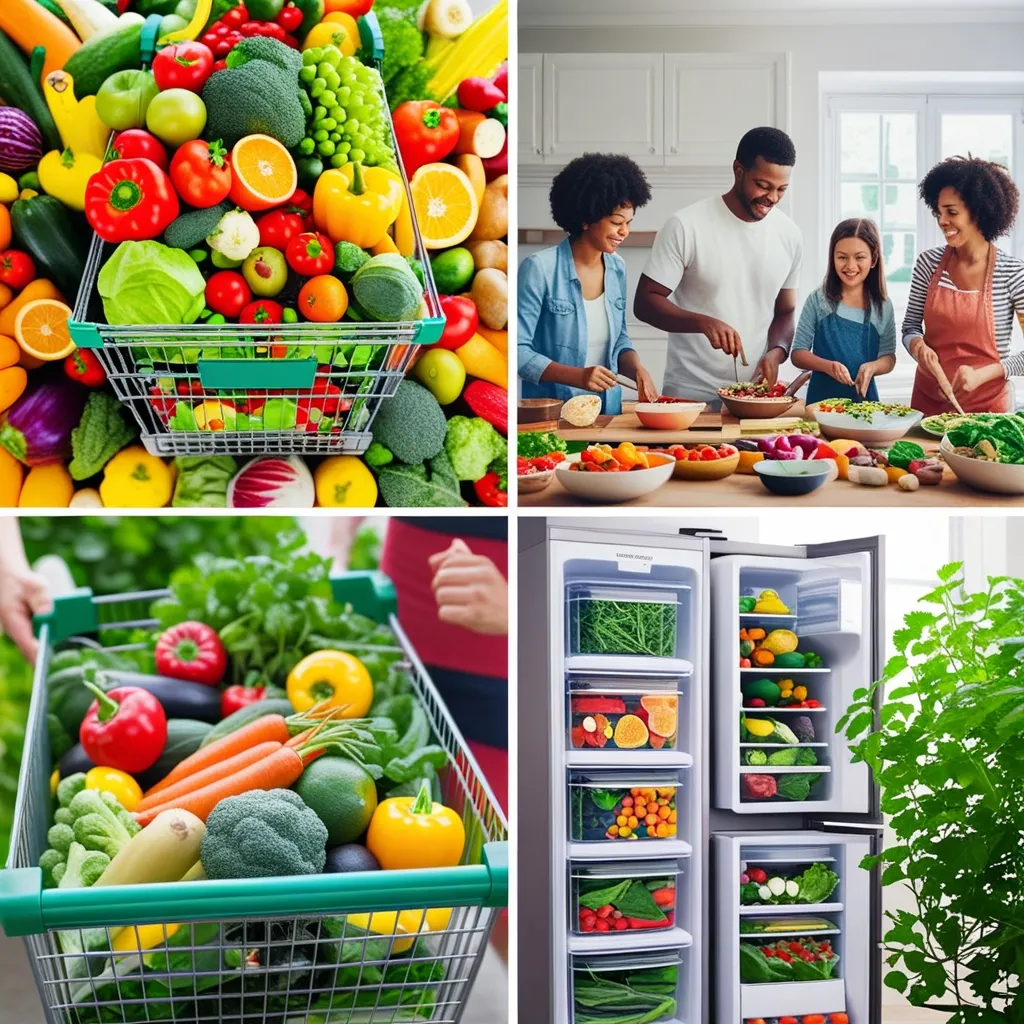Cutting down on food waste seems like a small step, but it’s actually a huge leap towards saving money, lowering your environmental footprint, and conserving precious natural resources. Here’s the lowdown on some straightforward tips to tweak your cooking and shopping habits for the better.
Kick things off by planning your meals. Before you dash off to the grocery store, lay out your meal plan for the week. This maneuver helps dodge the pitfall of buying too much, which often results in food waste. Jot down a list of the ingredients needed for each meal and check your fridge, freezer, and pantry to see what you’ve already got. This simple move saves you a few bucks and ensures you use up the homerun ingredients you already have.
When you’re at the store, try to keep your eyes on the prize—stick to that list. Steer clear of impulse buys. While grabbing huge quantities of stuff can sometimes be tempting, aim to buy in bulk only if you’re sure you can use them before they go bad. Another hot tip? Snag that perfectly edible but slightly imperfect produce—it’s typically cheaper and helps reduce waste.
Next up, focus on seasonal produce. It’s usually more affordable and kind on the environment since it doesn’t rack up miles from long-distance shipping. Dream about juicy watermelons in July and hearty winter squash in January. If you’re craving something out-of-season, hit up the frozen food aisle; those veggies are flash-frozen at peak freshness, maintaining all their nutritious goodness at a lower price.
Storage is also a biggie. Keeping your fridge at 40°F or lower and your freezer at 0°F can help maintain food safety and extend its shelf life. Use clear storage containers to store fresh food items so it’s easy to see what’s inside. Label those frozen foods with dates so you know just how long they’ve been chilling in there.
Let’s talk leftovers. Instead of chucking them, get creative! Last night’s dinner can easily morph into today’s lunch with some tweaks. Leftover veggies? Toss ‘em into a soup or stir-fry. Dining out? Don’t be shy; ask for a take-out box and enjoy that tasty dish a second time at home.
Getting the whole family on board is a game-changer. Teaching the kids to help with meal planning and cooking can lead to less waste and instill good habits for life. Plus, it’s a fantastic way for the little ones to understand the value of food.
Batch cooking and freezing is another stellar idea. Whip up extra portions of a hearty soup or stew and pop them in the freezer for later. This trick also works magic with produce nearing its expiry. Think smoothies or quick stir-fries bursting with flavor.
And don’t toss those veggie scraps—they’re gold! Use them to craft your own veggie broth or up the ante in your pasta dishes and soups. This not only reduces waste but adds more flavor and nutrients.
Got food you won’t use? Consider donating it to local food banks or shelters. On top of that, turning your food scraps into compost creates rich soil for your garden, making the circle of life even prettier.
Being aware of portion sizes while cooking can also nip waste in the bud. Use those serving size guides to prepare just the right amount. When eating out, you can always request smaller portions if you want to avoid the dreaded plate waste.
Transform your leftovers into whole new meals. That roasted chicken from one night can easily serve as the hero for a second meal the next day, then take a star turn in a homemade broth.
Check your fridge regularly. Keep tabs on what’s in there and what needs to be used up. Assemble a “use me” section and have a dedicated leftovers night once or twice a week to make sure nothing goes bad.
Food date labels can be confusing. It’s crucial to understand the difference between “use by,” “best by,” and “sell by” dates. This knowledge can prevent perfectly good food from being thrown away.
Implementing these strategies can dramatically reduce food waste at home. You’ll save money, tread more lightly on the planet, and ensure every bite counts. Start making these changes today and help pave the way towards a more sustainable future.






